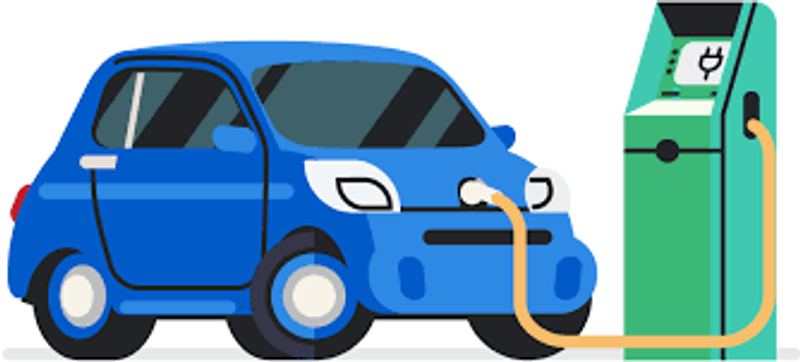
Mike Kelly Automotive Jobs, Engineering jobs
There has been a number of recent headlines painting a gloomy outlook in the automotive sector:
“Jaguar Land Rover staff face fresh fears in £2.5bn recover drive”
“General Motors to shred thousands of Jobs – Similar cuts expected at Fords”
“Jaguar Land Rover to move Discovery production to Slovakia”
A recent article in the FT has even suggested that the Automotive giants such as Jaguar Land Rover, GM, Ford and the German major manufacturers including BMW, Mercedes and Volkswagen were likely in the near future to have to deal with their own iPhone moment, with the shape of personal transport changing for ever.
Could this be at the beginning of the end for the established car manufacturers?
“The significance of the iPhone when it was launched in 2007 was not that it was a better phone, a superior camera or an improved MP3 player. Nor was it the touch screen, wide display or range of apps. It was all of these things in one device – “a converged technology”.
Whilst the “iPhone moment” for cars has not happened yet, it is becoming increasingly easy to imagine what it will look like: an electric, self-driving “living room on wheels”, connected to the web and more often shared among users rather than bought.
What appears to be worrying Investors and those working in the sector is that whilst at present it is not yet clear who will build this new vision; industry commentators are increasingly suggesting, that it seems unlikely, it will be the established players and in-particular the Germans.
This pessimism is against a backdrop of the three big German car makers continuing to post record sales for an eighth consecutive year, despite car registrations across the EU falling 23.5% last month. This drop was led by a 31% fall in Germany. Audi, Volkswagen’s most profitable unit, saw a jaw dropping 56% downturn.
According to Max Warburton, analyst at Bernstein. “Big car makers are valued like they will soon be bankrupt. The stocks are telling us a mighty recession is coming – but only in the auto industry. Not in the wider economy.”
Another commentator: Linda Kong Ting, director of public fixed income at Sun Life Investment Management says “The auto sector is really facing death by a thousand cuts. In isolation, no individual factor looks like it will sink the market, but you pile it all up and at some point, it will be a problem – we just don’t know when”
Diesel Downturn
The problem facing most of the German Manufactures appears to be their commitment to Diesel engines which in many developed markets are coming under increasing attack for the level of polluting emissions. Whilst in most global cities, diesel bans are currently little more than a point for discussion; In Germany, a federal court in February sided with environmental groups and said that banning diesel was an effective way to clean the air in the 70 German cities that were in breach of EU pollution laws. As a result, a driving restriction has now been enacted in Hamburg and next year more comprehensive bans are scheduled for Berlin, Stuttgart and Frankfurt.
These bans are likely to lead for calls in other countries for similar action and is likely to ramp up the pressure on the UK government to do more.
The UK has pledged that half of all new car sales will be hybrid or electric by 2030 as part of its “Road to Zero” plan to reduce vehicle emissions.
The new policy outlines for the first time how the UK plans to reach its goal of ending the sales of “conventional” petrol and diesel cars and vans by 2040, but it stops short of a complete ban on petrol and diesel vehicles at present.
EV is the future. For the first time in the third quarter of this year Tesla the US electric vehicle manufacturer outsold both Mercedes and BMW in the passenger car category.
Impact on jobs.
The worry for those working in the Automotive sector; is what impact this iPhone moment will have on jobs.
The current system and product line-based on combustion engine cars, supports a wide range of engineering jobs and skills which will lose importance and possibly disappear altogether as software and batteries take over.
“The whole frame of the car is different when you move from gasoline to electric,” says Sven Dharmani, global auto supply chain leader at EY. “Entire plants are going to become obsolete. The companies that make pistons and crankshafts are not going to provide the battery. It’s a different supply chain.”
So far, this new supply chain has been outsourced to Asia, where China controls more than two-thirds of the battery market. Europe’s global share of existing and planned battery production capacity is a mere 4 percent, according to Bloomberg data.
If the market is betting on someone building the “iPhone on wheels”, it is Tesla. VW has a market value of €6,500 for every car it sells; for Tesla the figure is €235,000, according to Bernstein.
The current car manufactures could still find a way to adapt. With their vast funding and dealer networks, they have the option to partner and investigate new technologies.
“The clock however is ticking down to that iPhone moment.”
